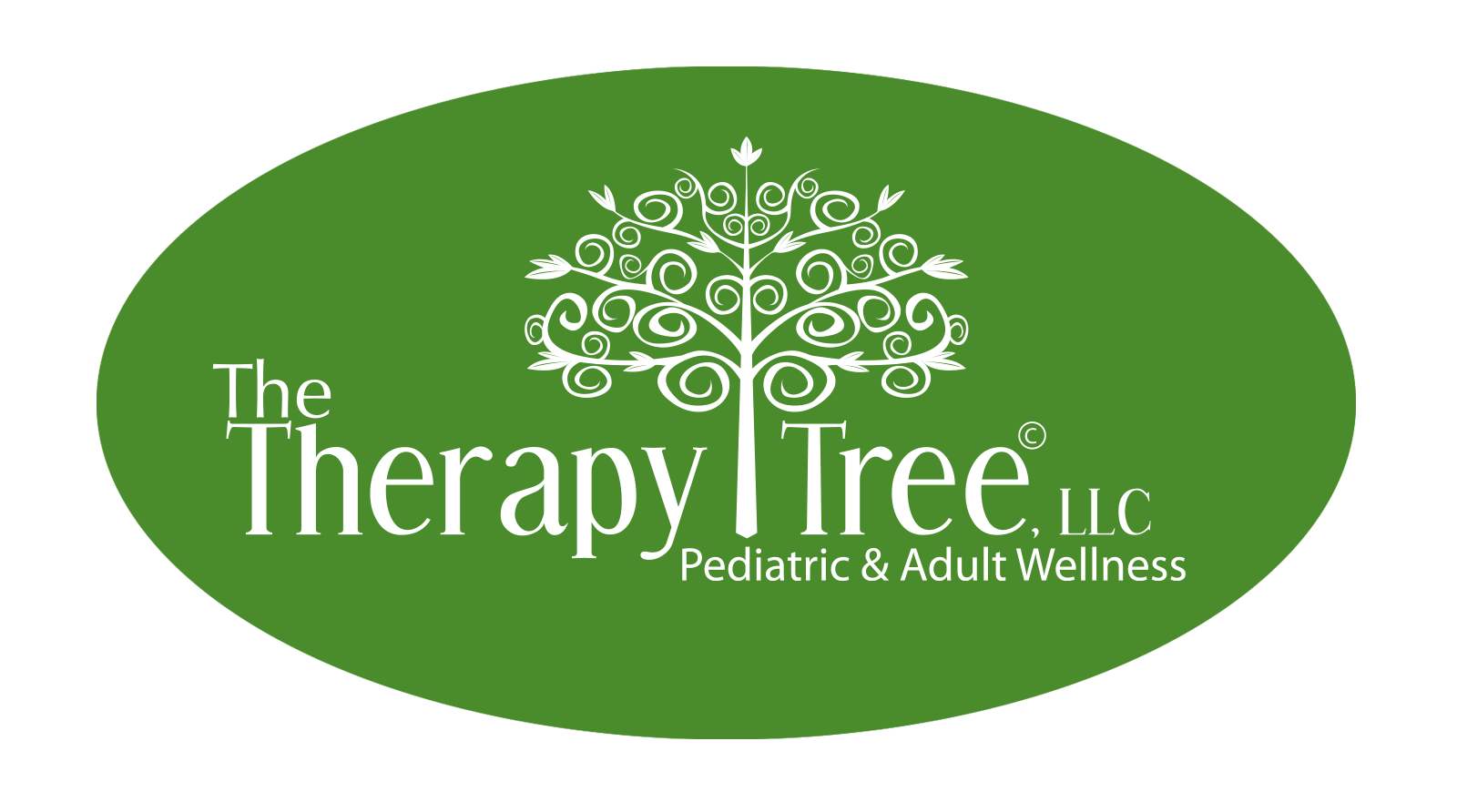“Good food is the foundation for genuine happiness.”
– Auguste Escoffier, French Chef
About Pediatric Oral-Motor Feeding Therapy at The Therapy Tree
Support and assistance is provided to children from birth to 21 years of age, with difficulties eating or swallowing such as picky eaters, coughing or gagging while eating, or abnormal weight loss or gain. Often feeding and/or swallowing therapies are provided as a collaborative effort by both Pediatric Speech Language Pathologists and Pediatric Occupational Therapists. The Therapy Tree Oral-Motor Feeding Therapy team is dedicated to working with children and their caregivers, who need help developing or improving the oral and sensory skills necessary for proper eating and swallowing. Children are taught how to become more aware of their oral muscles and work to build the endurance, movement, and strength of their cheeks, tongue, jaw, and lips. Oral-motor feeding therapy is a crucial element in helping prevent growth problems, malnutrition, and accidental passage of food into the lungs, while improving speech, boosting confidence in personal interactions and daily living skills. The type of therapeutic methods used and length of services are dependent on varying issues such as what problems are being addressed, who willing participants are and what their desired goals are, and also influenced by the strength and help of their support systems, and level of needs to be met. Sometimes sessions are set on a weekly basis, taking learning step by step and at a steady pace. Other times sessions can be more or less frequent based on the client’s particular needs at the time.
How do I know if my child needs oral-motor feeding therapy?
You may notice that your child is thinner or heavier than other children of the same age, or wonder why it seems that mealtime is often a battle. At wellness check-ups, your child’s pediatrician may notice difficulties that your child is having and write a prescription referring your child to oral-motor feeding therapy.
Conditions Treated by Pediatric Feeding Therapy
Many common reasons children are referred to oral-motor feeding therapy are failure to thrive, reflux, and picky eating. The challenges posed by problem eaters can be disruptive to families and meal times, and the usual well-meaning advice just does not work. Children who are problem eaters often have some combination of actual motor skill difficulty that makes eating difficult; or awareness problem that they are oversensitive or under-sensitive to food taste, temperature and textures; or challenges that make them feel like they can’t breathe or feel pain when they eat.
Feeding problems may arise because the child experienced some medical challenges, health challenges, food allergies, digestion challenges or a trauma that caused them to stop eating or become fearful of eating. Over time, feeding problems often turn into significant behavior challenges. Some children experience anxiety and fear about eating which is difficult to overcome without intervention.
- Autism Spectrum Disorders
- Bottle-feeding transitions
- Disruptive behaviors at meals
- Dysphagia (Swallowing disorders)
- Motor-based feeding disorders
- Oral-Motor management of food
- Picky eaters
- Poor weight gain or weight loss
- Problem Eaters (atypical feeding development)
- Self-Feeding difficulties (independence)
- Sensory-based feeding disorders
- Transition to table foods or other food textures
Developmental Milestones & Red Flags
Speech and Language Pathologist, Laura Houston, recalls frequently receiving phone calls from parents wondering if it is normal for their child to eat only a few items or take 2 hours to eat dinner. Although some children are simply picky eaters, many may be experiencing difficulty with feeding skills that need help from a therapist to make some positive changes. So how can you tell the difference?
Knowing that children develop at different rates, it can be hard for parents to determine whether their child is a picky eater or a problem eater on their own.
Children who are picky eaters typically eat something from each variety of textures (like smooth, crunchy, chewy, liquid) and at least 30 different kinds of foods. They often are somewhat slow to actually eat new foods, but usually can handle seeing the new food on the plate and with persistence will usually eat a new food after trying it 15-25 times. Sometimes they want to eat favorite foods all the time and occasionally then stop eating that food. When this happens, they usually will start eating that favorite food again within a week or two. Even picky eaters usually like eating, sitting with the family, and finish meals in about 30-40 minutes.
What happens if a full evaluation is suggested?
Your child will be evaluated to determine if oral-motor feeding therapy would be of benefit and what areas of development and nutrition need improvement. We strive to provide you with the most comfort, knowledge, and confidence in understanding the process and benefits of pediatric oral-motor feeding therapy and what can be accomplished. After the evaluation, if it is determined that oral-motor feeding therapy is necessary, we will address in-depth, specific difficulties that are occurring in the child’s oral-motor and sensorimotor development. Working together, we will develop an individualized treatment plan along with home teaching tools for parent/caregivers to practice skill-building exercises in the home, to improve or eliminate these problem areas. The use of different techniques, both traditional and complimentary, along with collaboration across multiple specialties available at The Therapy Tree, provide children the best possible outcome for increasing nutrition, eating, swallowing, and speech, along with independence, confidence, and overall life skills.
Our Oral-Motor Feeding Therapy Team
The Therapy Tree Pediatric Speech Language Pathologists and Occupational Therapists are responsible for evaluating each child’s condition and needs, developing a treatment plan for each, determining activities and specific goals to be accomplished, and determining the need for collaboration with other therapists here, including physical therapy, occupational therapy, and/or counseling services.
For more information on the therapeutic services we offer adults, families, and others, including massage therapy, yoga, and other wellness classes, please visit our Adult Services and our Wellness Center pages.

